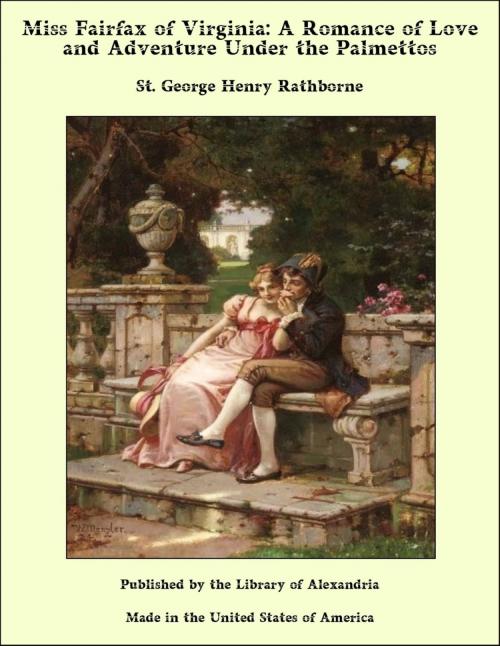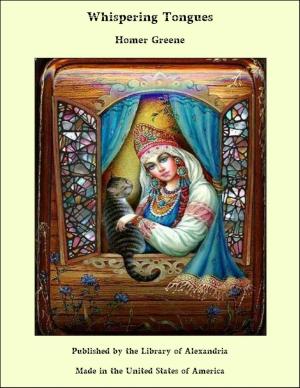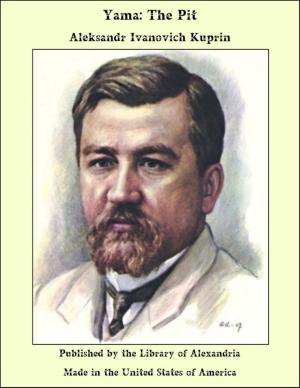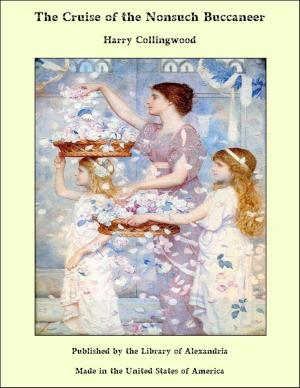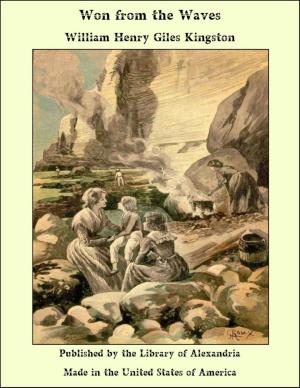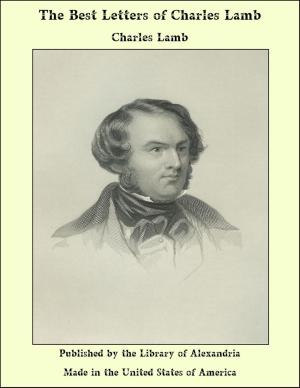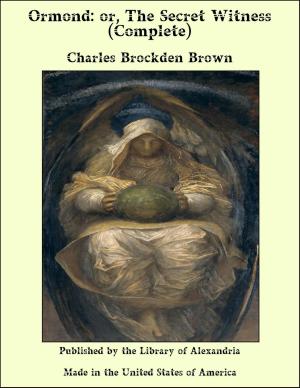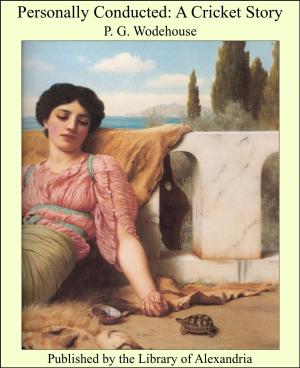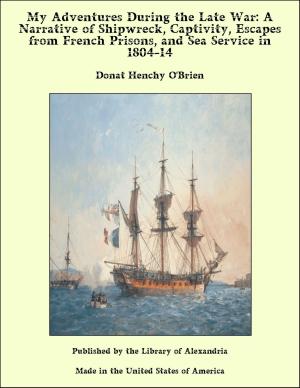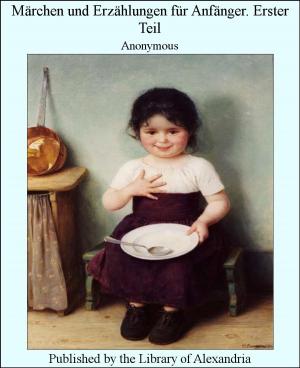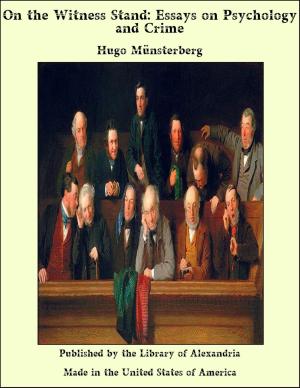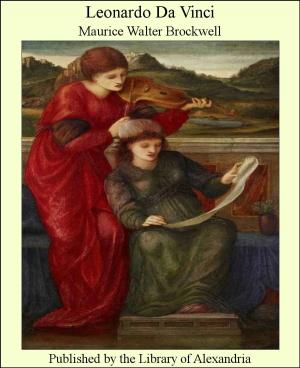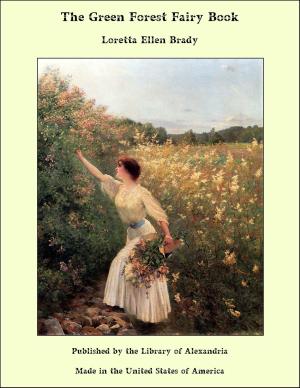Miss Fairfax of Virginia: A Romance of Love and Adventure Under the Palmettos
Nonfiction, Religion & Spirituality, New Age, History, Fiction & Literature| Author: | St. George Henry Rathborne | ISBN: | 9781465621542 |
| Publisher: | Library of Alexandria | Publication: | March 8, 2015 |
| Imprint: | Language: | English |
| Author: | St. George Henry Rathborne |
| ISBN: | 9781465621542 |
| Publisher: | Library of Alexandria |
| Publication: | March 8, 2015 |
| Imprint: | |
| Language: | English |
The genial summer sun had long since dropped behind the Irish hills, and the glowing lights of old Dublin were set like rare jewels upon the dark bosom of mother earth when Roderic Owen, with a fragrant cigar between his teeth, walked to and fro under the shadow of Nelson's column in historic Sackville street, now better known among loyal citizens under the name of O'Connell. Owen only arrived from Liverpool on the Holyhead steamer that very day and had passed some hours upon various tramcars, surveying those portions of the famous city they traversed. It may have given him a thrill of satisfaction to realize that he once more stood on his native heath, which land the exile had not seen since, a child of tender years, he left it in company with his heart broken parents; but two decades in the atmosphere of free America had made a full-fledged Yankee out of him, and his heart was wholly pledged to the interests of America. Business had more to do with his flying visit across the Irish sea than a desire to look upon the scenes of childhood—these tender recollections might be all very good in their way, but when his country was at war with one of the old world powers, young Owen's heart and soul were wrapped up in the interests he represented, and the state mission that had taken him over the Atlantic. The public will never learn more than a small portion of the unwritten history of the Hispano-American war, since these memoirs are snugly reposing in the archives at Washington, where they will rest until dusty with age. Secret agents were employed in many European capitals in the endeavor to discover the true sentiments of the powers most interested, so that in case unhappy Spain seemed in a way to secure an ally, prompt measures might be taken to head off the threatened blow by a sudden coup d'etat, in which our good friend Great Britain stood ready to do her part. Roderic Owen, being peculiarly gifted by nature with rare abilities in the line of diplomacy, had been remarkably useful in Berlin, Paris and Vienna, and was now suddenly transferred to another famous capital because it appeared as though Dublin might be the theatre of a little gathering where matters of intense moment were to be discussed. It was evident from his manner that he had made the Nelson column a rendezvous. His eyes followed each tramcar that passed, and never a jaunting-car jogged by that he did not survey with growing interest. A hot blooded Spanish lover awaiting the coming of the black-eyed senorita with whom he had made a tryst could hardly have appeared more anxious. He had just tossed away the remnant of his weed and was feeling for his cigar case to draw out another when the expected happened.
The genial summer sun had long since dropped behind the Irish hills, and the glowing lights of old Dublin were set like rare jewels upon the dark bosom of mother earth when Roderic Owen, with a fragrant cigar between his teeth, walked to and fro under the shadow of Nelson's column in historic Sackville street, now better known among loyal citizens under the name of O'Connell. Owen only arrived from Liverpool on the Holyhead steamer that very day and had passed some hours upon various tramcars, surveying those portions of the famous city they traversed. It may have given him a thrill of satisfaction to realize that he once more stood on his native heath, which land the exile had not seen since, a child of tender years, he left it in company with his heart broken parents; but two decades in the atmosphere of free America had made a full-fledged Yankee out of him, and his heart was wholly pledged to the interests of America. Business had more to do with his flying visit across the Irish sea than a desire to look upon the scenes of childhood—these tender recollections might be all very good in their way, but when his country was at war with one of the old world powers, young Owen's heart and soul were wrapped up in the interests he represented, and the state mission that had taken him over the Atlantic. The public will never learn more than a small portion of the unwritten history of the Hispano-American war, since these memoirs are snugly reposing in the archives at Washington, where they will rest until dusty with age. Secret agents were employed in many European capitals in the endeavor to discover the true sentiments of the powers most interested, so that in case unhappy Spain seemed in a way to secure an ally, prompt measures might be taken to head off the threatened blow by a sudden coup d'etat, in which our good friend Great Britain stood ready to do her part. Roderic Owen, being peculiarly gifted by nature with rare abilities in the line of diplomacy, had been remarkably useful in Berlin, Paris and Vienna, and was now suddenly transferred to another famous capital because it appeared as though Dublin might be the theatre of a little gathering where matters of intense moment were to be discussed. It was evident from his manner that he had made the Nelson column a rendezvous. His eyes followed each tramcar that passed, and never a jaunting-car jogged by that he did not survey with growing interest. A hot blooded Spanish lover awaiting the coming of the black-eyed senorita with whom he had made a tryst could hardly have appeared more anxious. He had just tossed away the remnant of his weed and was feeling for his cigar case to draw out another when the expected happened.
